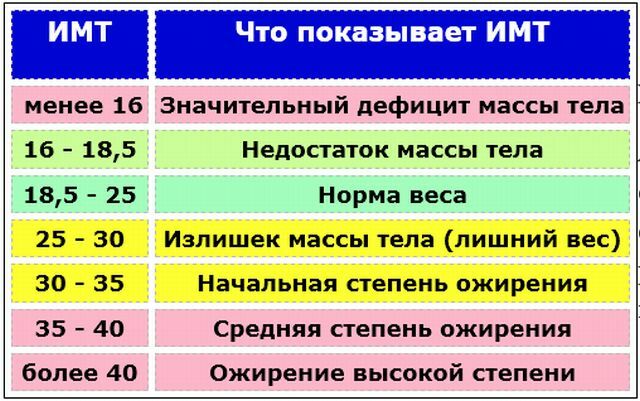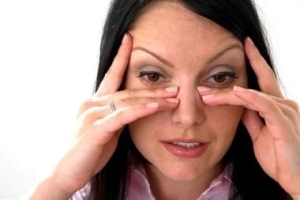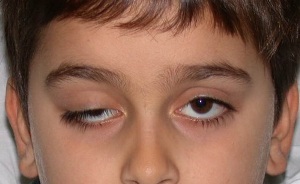 With age in the human body, there are many changes that affect not only the organs and systems, but also the psychological state.
With age in the human body, there are many changes that affect not only the organs and systems, but also the psychological state.
Older marasmus occurs in most cases due to diseases of the vascular system, including due to hypertension. For the male half of the population, the provoking factor also serves as extra weight, so you need to carefully monitor the condition of your body.
Long-term stresses that can lead to irreversible consequences not only in the elderly, but also at a young age, can also disturb the brain.
Contents
- Understand in terms and terms
- Why do old people fall into marasmus?
- Complex of symptoms and manifestations of
- Inspection from specialist
- Possibilities of modern medicine
- Support for the patient - what should relatives do?
- How much to live remains a painful but important issue
Understand in terms and terms
Marasmus( degradation-decay of personality or senile dementia) is a disease that gradually progresses and leads to irreversible disorders.
This condition provokes the atrophy of all processes occurring in the brain that arise due to diseases and changes in the circulatory system. It can aggravate heredity and stressful situation.
It's impossible to notice strangeness in a patient's behavior at once, a person becomes gradually distracted, forgetful, self-centered.
Symptoms of senile dementia will become more pronounced and noticeable as progression occurs. In the end, the patient will stop  from recognizing his family and friends, lose all skills, will require constant monitoring and assistance.
from recognizing his family and friends, lose all skills, will require constant monitoring and assistance.
Senile dementia is acquired over time and leads to the disintegration of mental functions. Marasmus can be diagnosed not only in the elderly, but also quite young, even in infancy.
Dementia in youth is a rare pathology. Such a condition does not come from self-treatment, but requires a certain and careful approach, especially from relatives.
In modern medicine, these types of senility are distinguished:
- Almentary marasmus( alimentary dystrophy).This type of pathology arises because of protein-energy deficiency. Diagnosis of this condition in children under the age of twelve months( which is why it is often called "infant senility").
- The old marasmus( senile dementia, sclerosis) is the disintegration of the individual, which is considered a negative disorder. With this condition, the patient may lose real contact with the surrounding world and people.
- There is also physical marasmus, but this condition is rarely diagnosed. In a patient, this condition is equated with cachexia, and manifests itself in the form of wilting. Very often experts call such a deviation by dementia.

Why do old people fall into marasmus?
Marasmus can occur and progress as a result of many provoking factors, ranging from a prolonged fever and ending with atrophic changes in the brain. Also very often this pathological deviation affects people who have had relatives with this diagnosis. But, we should not exclude the influence of external factors, such as infectious and internal diseases.
Senile senility is manifested and with such diseases and pathologies of the central nervous system:
- Alzheimer's disease;
- Parkinson's disease;
- Huntington's chorea;
- Pick's disease.
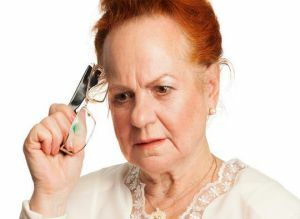 Senile dementia also occurs due to genetic programmed, dystrophic changes in nerve cells. Very often, stressful situations, nervous overexertion can influence the progression of the pathological process. The most vulnerable to degradation are patients who are single or mentally unstable, so marasmus is diagnosed in elderly people of retirement age.
Senile dementia also occurs due to genetic programmed, dystrophic changes in nerve cells. Very often, stressful situations, nervous overexertion can influence the progression of the pathological process. The most vulnerable to degradation are patients who are single or mentally unstable, so marasmus is diagnosed in elderly people of retirement age.
The abuse of alcohol can also exert a great influence on personality decay and dementia. Do not forget that marasmus can arise because of the increased pressure that affects the state of the vessels of the brain, and as a result, there is the development of schizophrenia, epilepsy, intoxication and trauma.
Complex of symptoms and manifestations of
Aging senility and concomitant dementia have a considerable number of symptoms, which can reveal the initial stages of disintegration of a person:
- Memory disorder .With mild dementia, minor dips in short-term memory may occur. The patient can forget the number, about which he spoke just that or some event that happened to him within a day. With a severe degree of pathology, long-term memory begins to suffer. The patient begins to forget relatives and friends, whom he worked for, what kind of education he has. Gradually develops disorientation.
- Violation of the speech function .
- Gradually the patient loses the ability to respond to several stimuli simultaneously, unable to concentrate attention on one session. It is necessary to say that problems with the orientation of begin with the first days of the disease. The patient ceases to orient not only in time, but also in space. The patient can even forget his own name.
- Personality and behavioral changes .These violations occur gradually and are manifested in the strengthening of some
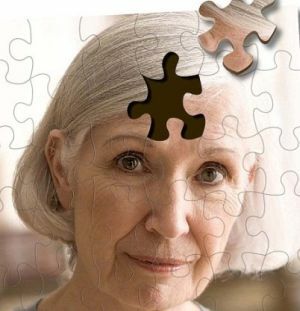 certain character traits. A person can become selfish, too suspicious or touchy.
certain character traits. A person can become selfish, too suspicious or touchy. - The patient ceases to think logically .Quite strange, and even crazy ideas may arise.
- Emotional Disorders .The patient may have depression, there may be a hung alarm or tearfulness, he can become embittered or indifferent.
- There are disorders of perception, illusion and hallucinations .
- Decreasing the critical attitude not only to yourself, but to the surrounding world .
In life, such patients look unpleasant:
Inspection from specialist
After symptoms appear, you need to contact a neurologist or psychiatrist. If you ignore the signs, the pathology will progress and lead to serious deviations, even death.
To diagnose a specialist conducting a conversation with a patient, offers to pass various tests that help to evaluate memory and cognitive abilities. The patient may be asked to write something on paper, tell something from well-known facts or explain the meaning of the elementary concept.
The specialist must always adhere to standard methods during the conversation. Attention is paid to the symptomatology, how long the signs of senile dementia are observed and how much they are manifested, as well as the concomitant diseases.
To recognize if atrophic processes occur in the brain, the patient can be referred for computed tomography. Treatment is appointed based on the interview and the results of the survey.
Possibilities of modern medicine
 With a timely and properly selected treatment, the prognosis is quite favorable. It is necessary to remember and understand that senile marasmus is an irreversible process, but if you carry out timely treatment, the patient's condition will stay on the same level and the pathology will cease to progress, thus you can stop the disintegration of the person and prolong the life of the person for several more years.
With a timely and properly selected treatment, the prognosis is quite favorable. It is necessary to remember and understand that senile marasmus is an irreversible process, but if you carry out timely treatment, the patient's condition will stay on the same level and the pathology will cease to progress, thus you can stop the disintegration of the person and prolong the life of the person for several more years.
Treatment of senile dementia and sclerosis will depend on provoking factors. With degenerative processes in the brain, cells gradually die and the process becomes irreversible, the disease gradually progresses.
Therefore, with Alzheimer's disease and other degenerative pathologies, the patient will not be cured. The main goal of the specialist is to suspend the permitting processes in the brain.
With senile marasmus, medication is not used. With a severe degree of pathology, the patient needs additional, third-party care, so a nurse may be needed.
The patient is recommended to leave in his environment, do not change anything.
With the development of dementia, the patient is advised to move as much as possible and to be interested in the surrounding world, constantly dealing with it. If the patient will lead a sedentary lifestyle, then he will develop lung pathology, there will be problems with appetite, there will be bedsores and joint diseases will begin to progress.
Specialists for maintaining the condition recommend taking multivitamins. At the initial stage, patients may be prescribed nootropic drugs.
If the patient suffers from insomnia, then it is recommended to revise the daily routine, walk more, rest a bit during the day and engage in some kind of business.
If insomnia has provoked a mental disorder or depression, you can prescribe a medicine. At the expressed fussiness and mental frustration to the patient it is better to accept neuroleptic preparations.
Support for the patient - what should relatives do?
Relatives, in order to maintain the condition of the patient, in whom senile marasmus, it is necessary to adhere to the following recommendations: 
- to create a favorable home atmosphere;
- keep the conversation going in a relaxed environment;
- refer to the patient by name;
- when talking, do not use abstruse phrases or words, if necessary, repeat what the patient did not understand;
- always remember the old days;
- help in everyday affairs, support it.
How long to live remains a painful, but important issue for
As mentioned earlier, senility can lead to memory impairment, speech function and other pathologies.
With regard to life expectancy, it will depend on the concomitant diseases, the general condition of the patient, the progression of the disease, social activity, heredity, the relationship of relatives to the patient, nutrition, lifestyle and other factors.
Having studied the statistical data, we came to the conclusion that the life span in senile marasmus depends on the concomitant pathology and is approximately:
- with dementia with Alzheimer's disease live no more than 15 years( the prognosis depends on the diseases that joined this condition, the lethal outcomemay occur within a few weeks or months);
- for dementia with Parkinson's disease the patient can survive for several years;
- in marasmus caused by Huntington's disease live no more than 15 years;
- with frontal dementia patient lives no more than 9 years;
- with dementia with Levi bodies the patient can live no more than 7 years;
- with vascular dementia , the life expectancy will be no more than 10-15 years, everything will depend on the patient's condition and accompanying pathologies.
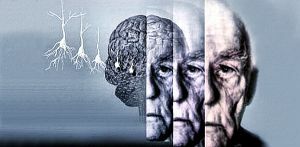 In any situation, the prognosis is unfavorable and the disease sooner or later leads to a lethal outcome. With senile marasmus, the patient becomes disabled, insane, incompetent.
In any situation, the prognosis is unfavorable and the disease sooner or later leads to a lethal outcome. With senile marasmus, the patient becomes disabled, insane, incompetent.
To prevent senile sclerosis and dementia, it is necessary to eat properly, supply the body with vitamins, minerals.
It is recommended to take vitamins B6 and B12, folic acid every day. To include tomatoes, watermelons, garlic in the diet. It is necessary to do daily exercises and get rid of bad habits.
It is necessary to observe the regime of the day and conduct a timely examination, treatment of provoking diseases.

